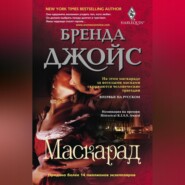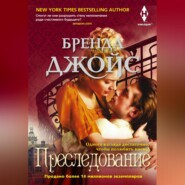По всем вопросам обращайтесь на: info@litportal.ru
(©) 2003-2025.
✖
The Prize
Автор
Год написания книги
2019
Настройки чтения
Размер шрифта
Высота строк
Поля
“Gerald O’Neill, I presume?” the mounted commanding officer asked, his tone filled with mockery and condescension.
“And to whom do I have the honor of this acquaintance?” Gerald said, as mocking, as condescending.
“Lord Captain Harold Hughes, ever His Majesty’s noble servant,” the officer returned, smiling coldly. He had a handsome face, blue-black hair and ice-cold blue eyes. “Have you not heard, O’Neill? The Defenders are beaten into a bloody pulp. General Lake has successfully stormed your puny headquarters at Vinegar Hill. I do believe the number of rebel dead has been tallied at fifteen thousand. You and your men are a futile lot.”
“Damn Lake and Cornwallis, too,” Gerald spat, the latter being the viceroy of Ireland. “We fight until every one of us is dead, Hughes. Or until we have won our land and our freedom.”
Devlin wished desperately that his father would not speak so with the British captain. But Hughes merely shrugged indifferently. “Burn everything,” he said, as if he were speaking about the weather.
Sean cried out. Devlin froze in shocked dismay.
“Captain, sir,” a junior officer said. “Burn everything?”
Hughes smiled at Gerald, who had turned as white as a ghost. “Everything, Smith. Every field, every pasture, every crop, the stable, the livestock—the house.”
The lieutenant turned, the orders quickly given. Devlin and Sean exchanged horrified glances. Their mother and Meg remained in the manor house. He didn’t know what to do. The urge to shout, “No!” and rush the soldiers was all-consuming.
“Hughes!” Gerald said fiercely, his tone a command. “My wife and my children are inside.”
“Really?” Hughes didn’t seem impressed. “Maybe their deaths will make others think twice about committing treason,” he said.
Gerald’s eyes widened.
“Burn everything,” Hughes snapped. “And I do mean everything.”
Gerald lunged for the mounted captain, but was restrained. Devlin didn’t stop to think—he whirled, about to run from the cornfield to the manor. But he had taken only a step or two when he halted in his tracks. For his mother, Mary, stood in the open front door of the house, the baby cradled in her arms. Relief made him stumble. He reached for Sean’s hand, daring to breathe. Then he looked back at his father and Captain Hughes.
Hughes’s expression had changed. His brows had lifted with interest and he was staring across the several dozen yards separating him and his prisoner from the manor. “Your wife, I presume?”
Gerald heaved violently at his bonds and the three men holding him. “You bastard. You touch her and I’ll kill you, one way or another, I swear.”
Hughes smiled, his gaze on Mary. As if he hadn’t heard Gerald, he murmured, “Well, well. This is a pretty turn of events. Bring the woman to my quarters.”
“Yes, sir.” Lieutenant Smith whirled his mount toward the manor.
“Hughes! You touch a hair on my wife’s head and I’ll cut your balls off one by one,” Gerald ground out.
“Really? And this from a man fated to hang—or worse.” And he calmly unsheathed his sword. An instant later, one solid blow struck Gerald, severing his head.
Devlin stared—beyond shock—as his father’s headless body collapsed slowly to the ground—as his head rolled there, both gray eyes open and still filled with rage.
He turned, still in absolute denial, and watched his mother fall in a swoon. Meg wailed loudly, kicking and flailing, on the ground by Mary.
“Take the woman,” Hughes said. “Bring her to my quarters and burn down the damned house.” He spurred his mount around and galloped off.
And as two soldiers started toward the manor—toward his unconscious mother, Meg wailing on the ground beside her—the reality of his father’s brutal murder hit Devlin with stunning force. Father was dead. He’d been murdered, savagely murdered, in cold blood. By that damned English captain, Hughes.
He’d left the sword behind in the battle; now he raised the silly little dagger. A scream emanated from somewhere, a monstrous sound, high-pitched, filled with rage and grief. He vaguely realized the sound came from himself. He started forward unsteadily, determined to kill anyone that he could, anyone who was British.
A soldier blinked at him in wild surprise as Devlin raced toward him, dagger raised.
A blow from behind took him on the back of his head and mercifully, after the first moment of blinding pain, there was blackness—and blessed relief.
DEVLIN AWOKE SLOWLY, with difficulty, aware of a sharp pain in his head, of cold and dampness and a vague sense of dread.
“Dev?” Sean whispered. “Dev, are you waking?”
He became aware now of his brother’s thin arms wrapped tightly around him. An odd smell pervaded the air, acrid and bitter. He wondered where he was, what was happening—then he saw his father standing shackled between the redcoats; he saw Captain Hughes raise his sword and sever his head.
Devlin gasped, eyes flying open.
Sean hugged him harder, once.
Full recollection made him struggle to his knees. They were in the woods and it had rained some time ago, leaving everything cold and wet. Devlin lurched aside and wretched dryly, clinging to the dark Irish earth.
Finally it was over. He sat back on his haunches, meeting Sean’s gaze. His brother had made a small fire, just enough to see by, not enough for warmth. “Mother? Meg?” he asked hoarsely.
“I don’t know where Mother is,” Sean said, his tiny face pinched. “The soldiers took her away before she even woke up. I wanted to go get Meg, but after you went berserk and that soldier whacked you, I dragged you here, to be safe. Then they started the fires, Devlin.” His eyes filled with tears. He began to pant harshly. “It’s all gone, everything.”
Devlin stared, for one moment as frightened as his brother, but then he came to his senses. Everything was up to him now. He could not cry—he had to lead. “Stop blubbering like a baby,” he said sharply. “We need to rescue Mother and find Meg.”
Instantly, Sean stopped sobbing. His eyes wide and riveted on his brother, he slowly nodded.
Devlin stood, not bothering to brush off his britches, which were filthy. They hurried through the glade. At its edge, Devlin stumbled.
Even in the moonlight, the land had always been soft with meadows and tall with stalks. Now a vast flatness stretched before him, and where the manor once was, he saw a shell of stone walls and two desolate chimneys. The acrid odor was immediately identifiable—it was smoke and ash.
“We’ll starve this winter,” Sean whispered, gripping his hand.
“Did they go back to the garrison at Kilmallock?” Devlin asked sharply, grimly. Determination had replaced the icy fear, the nauseating dread.
Sean nodded. “Dev? How will we rescue her? I mean, they’ve got thousands…. We’re just two—and boys, at that.”
That exact question was haunting him. “We’ll find a way,” he said. “I promise you, Sean. We will find a way.”
IT WAS HIGH NOON WHEN THEY arrived atop a ridge that overlooked the British fort at Kilmallock. Devlin’s spirits faltered as he looked past the wood stockades and over a sea of white tents and redcoats. Flags marked the commanding officer’s quarters, well in the midst of the fort. Immediately, Devlin thought about how he and Sean, two young boys, could enter the fort. Had he been taller, he would have killed a soldier for his uniform. However, now he considered the possibility that they could simply walk through those open front gates with a wagon, a convoy or a group of soldiers, as they were both so small and unthreatening.
“Do you think she’s all right?” Sean whispered. His color had not returned, not even once, since they saw their father so gruesomely murdered. He remained frighteningly pale, his lips chewed raw, his eyes filled with fear. Devlin worried that he would become sick.
Devlin put his arm around him. “We’re going to save her and make everything right again,” he said firmly. But somehow, deep in his sickened heart, he knew his words were a terrible lie—nothing would ever be right again.
And what had become of little Meg? He was afraid to even think of the possibility that she had burned in the fire.
Devlin screwed his eyes shut. A terrible stillness slid over him. His breathing, for the first time, calmed. The churning in his insides steadied. Something dark began to form in his mind. Something dark, grim and hard—something terrible and unyielding.
Sean started to cry. “What if he hurt her? What if…what if he…he did to her…what he did to Father?”
Devlin blinked and found himself staring coldly down at the fort. For one moment, he continued to stare, ignoring his brother, aware of the huge change that had just affected him. The ten-year-old boy had vanished forever. A man had appeared in his place, a man cold and purposeful, a man whose anger simmered far below the surface, fueling vast intent. The strength of his resolve astonished him.

















